General Asthma Questions
What is Asthma?
Asthma is a chronic condition where your airways narrow and swell, making breathing difficult. It can be triggered by allergens, exercise, or environmental factors.
Can asthma be cured?
There is no cure for asthma, but it can be effectively managed with proper care, medications, and lifestyle adjustments.
What are common asthma triggers?
Triggers vary but may include dust mites, pollen, animal dander, smoke, mold, and physical activity. Learn more about asthma triggers.
What are common asthma symptoms?
Symptoms include wheezing, shortness of breath, chest tightness, and coughing, especially at night or early morning. Learn more about asthma symptoms.
Is asthma contagious?
No, asthma is not contagious. It is a chronic condition that may be influenced by genetics and environmental factors.
What are the different types of asthma?
Asthma types include allergic asthma, exercise-induced asthma, and occupational asthma among others. Learn more about different types of asthma.
Can asthma develop later in life?
Yes, adult-onset asthma can develop due to environmental exposure, infections, or hormonal changes.
Is asthma genetic?
Asthma can run in families, but environmental factors also play a role in its development.
Can children outgrow asthma?
Some children may experience fewer symptoms as they grow older, but asthma can return later in life.
MAnaging Asthma
How can I control my asthma?
Control asthma by avoiding triggers, using prescribed medications, and following an asthma action plan. Learn more about asthma management.
What is an asthma action plan?
An asthma action plan is a personalized plan that helps you monitor and manage asthma symptoms effectively.
Should I use my inhaler daily?
If prescribed a controller inhaler, use it daily. A rescue inhaler should only be used for sudden symptoms.
What is the best way to use an inhaler?
Shake the inhaler, breathe out fully, place the inhaler in your mouth, press the inhaler, and inhale deeply. Hold your breath for a few seconds before exhaling.
Can I exercise with asthma?
Yes, but warm up properly, take prescribed medications if needed, and avoid extreme weather conditions.
Can stress trigger asthma?
Yes, stress and anxiety can cause asthma flare-ups. Practicing relaxation techniques can help. Learn more about stress as an asthma trigger.
How does weather affect asthma?
Cold air, humidity, and sudden weather changes can trigger asthma symptoms in some people. Learn more about the weather as an asthma trigger.
What household changes can help manage asthma?
Reduce dust, avoid scented products, keep pets out of the bedroom, and use an air purifier if necessary. Learn how to create an asthma-friendly home.
Can diet affect asthma?
Yes, avoiding food allergens and eating anti-inflammatory foods like fruits and vegetables may help.
asthma triggers
Can air pollution make asthma worse?
Yes, exposure to pollutants like smog and vehicle emissions can worsen asthma symptoms. Learn more about impact of air pollution on asthma.
Does smoking affect asthma?
Yes, smoking and secondhand smoke exposure can severely worsen asthma. Learn more about how passive smoking can trigger asthma.
Can mold trigger asthma?
Yes, mold spores can be a strong trigger for asthma symptoms.
Can scented products trigger asthma?
Yes, strong perfumes, air fresheners, and cleaning chemicals can irritate the airways. Learn about impact of strong fragrances on asthma.
How can I reduce dust in my home?
Use HEPA filters, vacuum regularly, wash bedding in hot water, and avoid heavy carpets. Learn more about how to create an asthma friendly home.
Can I have asthma without allergies?
Yes, some people have non-allergic asthma, which is triggered by factors like cold air or exercise. Learn more about non-allergic asthma.
Can acid reflux (GERD) trigger asthma symptoms?
Yes, acid reflux (GERD) can trigger asthma symptoms. Read more about the hidden connection between GERD and Asthma.
Can paint fumes trigger asthma attacks?
Yes, paint fumes contain volatile organic compounds (VOCs) and strong chemicals that can irritate the airways and trigger asthma symptoms. Learn more about the risks of paint exposure for people with asthma.

